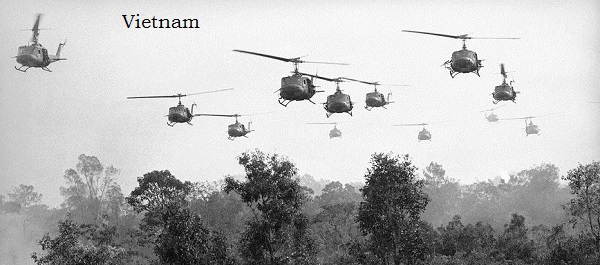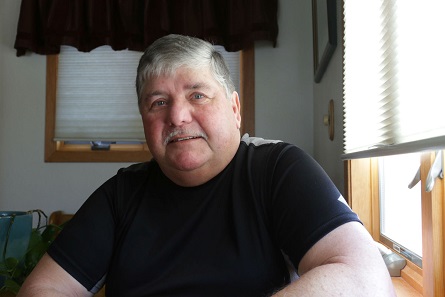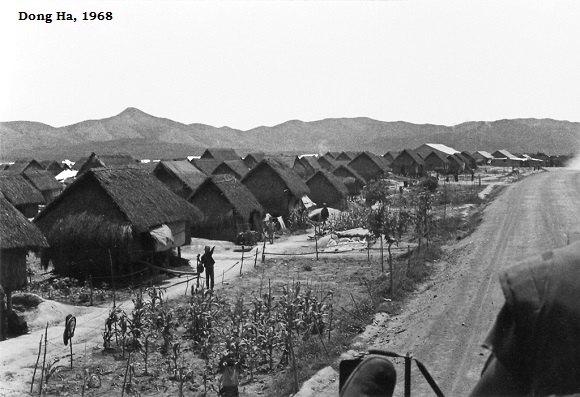


Cerro Gordo County Iowa
Part of the IAGenWeb Project
|
The Globe-Gazette
 The Globe Gazette will publish 50 stories — starting on Veterans Day — about North Iowa’s Vietnam Veterans. The stories will appear on Sundays and Wednesdays. We’ll culminate this "They Served With Honor" project with a special section (publishing on the day before Memorial Day) that will include all of the profiles. It will be great keepsake and resource for family members, educators and part-time historians.
by Molly Montag, March 06, 2016

A member of the Army motor pool, he was armed with a rifle, grenade launcher and other weapons, but it was a lonely, solitary duty. “They put you out in the middle of nowhere, just you and your sleeping bag,” said Tripp, now 68. “You’re on, like, four hours, off two hours, back on for four. “Rain or shine. Lots of rain.” Tripp, now in Garner, had joined the Army after losing his welding job to a large layoff. He figured he might as well get it over with. Basic training at Fort Bliss, Texas, was followed by track vehicle mechanical training in Huachuca, Arizona. He and his unit, the 108th Artillery Group, met up in Fort Riley, Kansas, and then took a troop ship from Oakland, California, to Da Nang, Vietnam. Then it was up the river to the post in Dong Ha, an area about 10 miles from the Demilitarized Zone, separating North Vietnam and South Vietnam territories. Tripp’s pictures of Dong Ha show a barren, almost prairie-like place.
 “We had to build our own compound, make our own living quarters, build bunkers,” he said. “I pulled perimeter guard for like the first three months and there was no foxholes or bunkers or anything at the time.” Troops lived in plywood buildings called hooches. They were protected from incoming artillery fire by bunkers, which were about half the size of a metal shipping container and buried into the ground with sand bags thrown on top. Tripp and other soldiers ran to the bunkers at the first sign of incoming artillery rounds. It often happened at night. “You didn’t have to wait for an explosion. You could tell when a round went over your hooch, and you automatically jumped up and ran to your bunker,” he said. Tripp’s unit was tasked with tracing back the incoming fire to its source. They sent this information to other American units in the area, which would fire at the now-known enemy locations. “Our company would figure out where they had shot and how far the round had traveled,” he said. “And, then we would give commands to the other outpost artillery to start firing back.” One day, the Viet Cong hit the Americans’ ammo supply. Tripp, who had driven a lieutenant to the airport, was stranded and unable to get safely back to his unit. The explosions lasted eight hours, causing such compression that it blew in the sides of buildings at the Marine compound in which Tripp sheltered. “I sat in a Marine bunker with a Marine like a half a mile away, because there was no way I could drive back to the compound,” Tripp said. “So, I just parked on the road and ran into his bunker and we sat there and watched the fireworks.” Six of the seven hooches burned to the ground, but solders escaped injury by hunkering down in the bunkers. Tripp spent 13 months in Vietnam. He finished his career with stints at the U.S. Field Artillery School in Fort Sill, Oklahoma, and at Fort Irwin in the Mojave Desert near Barstow, California. The transition to civilian life was a difficult one. Tripp says he drank a lot, until his first marriage. “I could be up five, six times a night. Wouldn’t be able to sleep,” he said. So I’d be up, spit-shine my shoes. Or, any little noise outside...I knew something was going on.” Even now, 50 years later, he still has a difficult time sleeping through the night. He also has symptoms of exposure to Agent Orange, a herbicide widely used in Vietnam, and post-traumatic stress. He finds it helps to talk about it, especially with other veterans. He also participates in a veterans motorcycle group. “It’s easier to talk about it now,” he said. Transcription by Sharon R. Becker, March of 2016
|